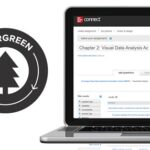COVID closed campuses and also gave a boost to cyberthreats to IT networks. As data security breaches–including ransomware attacks, phishing, and unauthorized disclosures–show no sign of slowing, higher-ed IT leaders need to be ready.
IT teams understand how important cybersecurity measures are, but many struggle to pinpoint where to begin when their resources are limited.
Threats to higher education networks will never be eliminated, but there are strategies to successfully defend campus information infrastructure. Want to learn more? Join a conversation with fellow ed tech leaders and experts as they share best practices on both the technical aspects–software and services–and the human aspects–professional development and community education–of keeping your networks safe and sound.
- 5 ways microcredentials help higher-ed students succeed - August 7, 2025
- As higher ed embraces AI, where is learning headed? - July 22, 2025
- Students view AI with optimism, but women are at risk of being left behind - July 7, 2025
More from eCampus News
McGraw Hill Transitions from Traditional Textbook Edition Publishing Cycle with New Evergreen™ Delivery Model
COLUMBUS, Ohio (GLOBE NEWSWIRE) — McGraw Hill announced the launch of an industry-first delivery model that releases digital product updates directly to existing courses already built by instructors, replacing the…
Future proof your career: Human-centered majors in the AI era
Walk into any classroom or workplace today, and the topic of AI comes up quickly. Some are energized by the possibilities. Others are worried about what might be lost. Most of us feel both.
WGU aims to help students, alumni highlight career-ready skills
More than 588,000 students and alumni at Western Governors University now have access to a powerful new tool to help them navigate and shape their career journeys: the WGU Achievement Wallet.
Democracy’s future and the fate of higher education
Since the founding of the United States, democracy and higher education have been deeply intertwined. The early architects of the republic recognized that democracy requires an educated citizenry capable of informed participation.
Using AI and predictive analytics to safeguard student success
Colleges and universities are navigating an increasingly complex landscape. Rising rates of anxiety, depression, and burnout are colliding with growing concerns about physical safety.
The false hope of skills-based hiring
Skills-based hiring is often floated as the big answer to the shortage of talent for open job postings and the on-ramp into meaningful careers for those without degrees.





